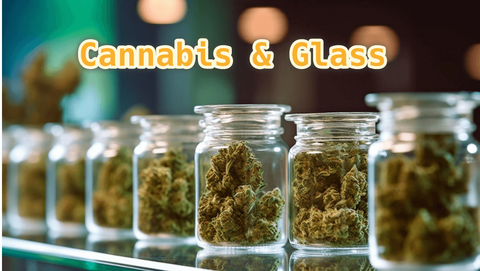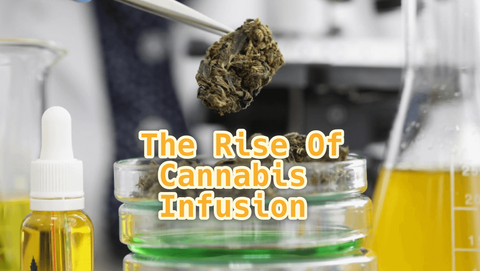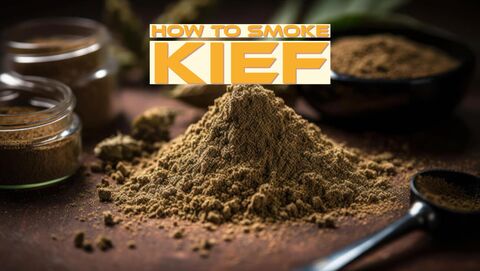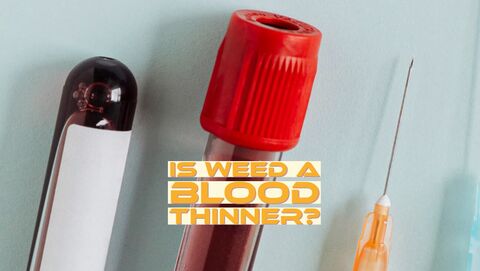Latest Blog Posts
Top rated
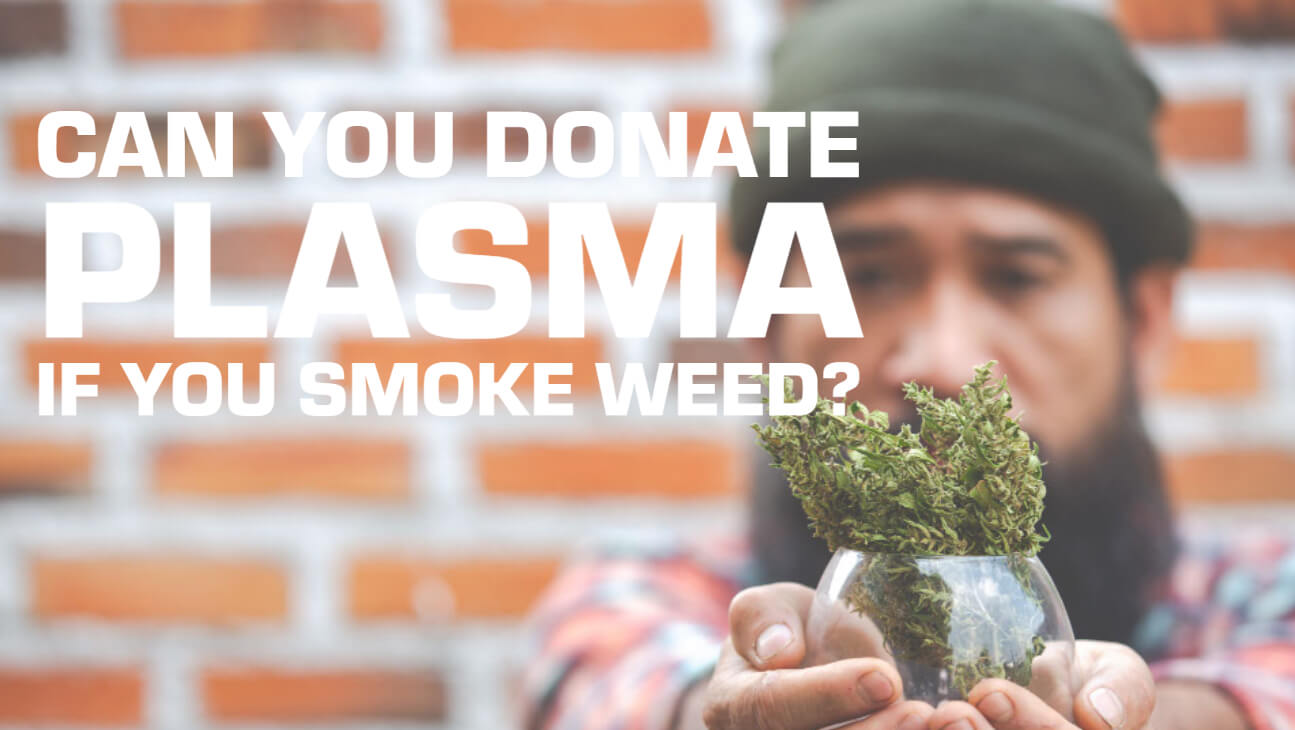
Can You Donate Plasma If You Smoke Weed?
This is a problem that many people face, and it's not entirely obvious how to solve it. While there are certain health organizations that believe that it is acceptable to donate plasma even if you consume marijuana, there are other organizations that maintain that this practice is not permitted. In this article, you will look into the subject of whether or not someone who smokes pot is still eligible to donate plasma. You'll also be provided with information about weed and its possible benefits.
The flowers and leaves of the cannabis plant are used to produce the psychoactive substance known as marijuana. These plant pieces are often dried out before being smoked in cigarettes or utilized in some other way.
People consume marijuana to induce a state of relaxation or to bring about a change in their level of awareness. This state of mind is referred to as "high," and it is possible to obtain it by various methods, including smoking, vaporizing, or consuming foods containing marijuana.
Since marijuana has been shown to be effective in treating chronic pain and various other disorders, the substance is being used for medical purposes. Marijuana is sometimes referred to as grass, weed, herb, ganja, and others.
In spite of the fact that marijuana is not nearly as addictive as heroin or cocaine, and despite the fact that many people believe that the high produced by marijuana is not more powerful or dangerous than that produced by alcohol, marijuana is still banned under US federal law. However, the use of marijuana for medicinal or recreational purposes is allowed in some states, such as California.
How Exactly Does One Get High From Marijuana?: Considering Both CBD And THC
Cannabinoids are the compounds that are responsible for the psychoactive effects of marijuana.
More than one hundred cannabinoids, which are chemical substances that occur naturally in plants, animals, and even people, are present in marijuana. The cannabinoids naturally produced by the body and found in the brain are referred to as endocannabinoids. The National Institute on Drug Abuse asserts that these substances play a significant part in a person's thinking, memory, and sensory perception.
Cannabinoids such as tetrahydrocannabinol (also known as THC) and cannabidiol (CBD) are responsible for many of the effects that marijuana has. THC and CBD act on distinct brain pathways, leading to different physiological and psychological responses in the user.
For instance, THC is far more psychoactive than CBD, which means that it has the potential to alter how the brain perceives the world around it. It affects the endocannabinoid system of the body and is the cannabinoid that is responsible for people feeling high or euphoric when they consume cannabis.
THC Is What Gives Individuals The Feeling Of Being "High"
THC is more psychotropic than CBD; thus, it can change how the brain sees the world. It affects the endocannabinoid system and makes cannabis users feel high.
CBD does not influence the same neural pathways in the same way. Scientists believe that cannabidiol, or CBD, affects the serotonin pathway in the brain, which is responsible for regulating mood, sleep, hunger, and cravings. You may experience less cognitive disturbance as a result of its calming and relaxing effects. It also has a weaker influence on the body's physiological responses.

The amount of THC and CBD that can be found in a cannabis plant can vary significantly based on several factors, including how it was cultivated, how it was processed, and how it was kept. The greater the concentration of THC in the plant, the more potent its effects will be.
There are also hundreds of additional compounds that can be found in marijuana, with the levels varying from plant to plant.
Sativa and Indica cannabis plants are the most common types of cannabis plants that are used to create marijuana. The effects of each are slightly distinct from one another. Additionally, hybrid plants can be created to blend the two types of plants. Cannabis plants, which are subspecies of the cannabis plant, do not generate the same high (or even close to the same high) as Sativa or Indica plants.
Due to its capacity to reduce tension, relax the body, and cause changes in perception, marijuana has been widely used as a recreational drug for thousands of years.
Why Is Weed Used As Medication, And What Types Of Conditions Does It Treat?
Since 5000 years ago, people have been using weed for therapeutic purposes.
In recent decades, there has been a gradual shift toward a more positive attitude in the United States regarding the use of weed as a treatment for a diverse variety of illnesses.
People find medical marijuana beneficial in the treatment of pain, nausea, and loss of appetite associated with cancer, AIDS, and other diseases. Cannabinoids have an effect on both physical and mental processes, and it is not believed that cannabinoids cause the adverse effects that are associated with prescription drugs.
Because marijuana has been shown to be so helpful in these situations, there are now various prescription medications that contain Cannabis or synthetic Cannabis that have been approved by the FDA. Anorexia caused by HIV/AIDS and cancer can be treated with these, which have been created and are in use.
The Use Of Marijuana For Medical Purposes Can Be Beneficial In Treating A Variety Of Conditions
According to a number of studies, the use of marijuana for medical purposes can be beneficial in treating a variety of conditions or symptoms, such as anxiety, sleep difficulties, chronic pain, and spasticity associated with multiple sclerosis, arthritis, and Crohn's disease. In addition, there are many who choose to manage with marijuana rather than with prescribed medications.
There is a wide variety of medical marijuana available. It can be inhaled through smoking, but it can also be taken in the form of an edible, a vaporizer, a tincture, or a pill.
Researchers are currently looking at the qualities, applications, and potential adverse side effects of using marijuana for medical purposes.
Before incorporating marijuana into your treatment regimen, you should discuss it with your primary care provider first, as the long-term effects are not yet fully understood.
As a result of the fact that this medication is derived from a plant, it is typically seen as being natural and free of any potentially hazardous toxins or ill effects. On the other hand, not all marijuana is risk-free because its potency is rising, and the manufacturing process is not regulated.
Various Ways Of Consumption
What are some of marijuana's many consumption methods?
- To smoke cannabis, one packs a small amount of the plant into a pipe or a roll of paper and inhales the smoke. After lighting it, you inhale the smoke through the mouthpiece of the gadget while it is still lit.
- Candies, ice cream, gummy bears, mints, and brownies are just some of the edibles that can be infused with cannabis. For all of them, simply infuse cannabis with butter or oil.
- There is a growing trend toward using edible cannabis rather than smoking it, despite the fact that the potency of edibles varies widely and that some of them can cause severe, long-lasting side effects. When THC is taken orally, it may take longer for the drug to be absorbed by the body and for its effects to peak and then decrease.
- Vaporizer- The process involves the inhalation of vapor rather than smoke. This method is thought to be less harmful to the lungs than smoking, though more study is needed to prove this.
- CBD oil- To begin manufacturing CBD oil, the resin is first extracted from marijuana or hemp plants. Cannabis plant extracts are weaker and less concentrated than marijuana plant extracts.
- Concentrated medical marijuana is available in the form of tinctures, which can be sprayed or mixed with alcohol, glycerol, or MCT (medium-chain triglyceride) oil. A number of diseases and injuries can be helped by using a tincture. The liquid can be sprayed or squirted under the tongue. It can also be mixed with other drinks, such as water. One possible disadvantage of this method is that it could increase costs: Even the tiniest bottle of tincture might cost as much as $600.
- Ointments, salts, balms, lotions, and oils are topical relievers that can help you feel better quickly. There is no evidence that these topical treatments cause nausea.
How Long Does It Take For The Effects Of Marijuana To Leave The Body?
Even while marijuana's effects fade relatively fast, the drug's presence can linger in the body for many weeks and even longer in rare cases. The amount of time that the active chemicals and breakdown products of marijuana stay in a person's body is directly related to the quantity of and frequency with which they consume marijuana and can range anywhere from a few hours to ninety days.
For instance, a single dose of marijuana can be detectable in the body for up to 13 days after consumption, but this varies depending on the kind of test that is performed. When marijuana is smoked infrequently or when only a few puffs are taken, the psychoactive effects of the drug leave the body more quickly than when marijuana is smoked regularly or when substantial quantities are smoked.
Despite the fact that a number of states in the United States have legalized the use of marijuana for medical purposes and that marijuana use for recreational purposes is permitted in some states for adults over the age of 21, the federal government still considers marijuana to be a Schedule I controlled substance.
How Much Time Must Pass Before It Starts To Have An Effect?
It's possible that different people will respond differently to the effects of weed. While some people experience feelings of euphoria and relaxation, others report feelings of anxiety and paranoia. In other instances, individuals report that they have the sensation of being "dumb," lose interest in activities, or are unable to comprehend concepts.
Tetrahydrocannabinol, usually known as delta-9-THC or just THC for short, is the chemical found in marijuana that is responsible for producing the "high" feeling. When marijuana is smoked, the active ingredient is delivered to the bloodstream in a short amount of time.

If marijuana is taken by mouth rather than smoked, the psychoactive components are delivered to the bloodstream gradually over a longer period of time, often ranging from 20 minutes to an hour and a half. However, this can change based on how much of the drug is ingested, and other physiological processes such as absorption, metabolism, and excretion can also have an effect on how much of the drug is present in the blood.
The Effects Can Differ Significantly
- dry mouth
- puffy eyelids
- eyes red with blood
- pleasant feelings all over one's body
- a more voracious appetite ("ravenous hunger")
- relaxation
- excitement
- an inaccurate perception of the events (of sights, sounds, time, touch)
- a breakdown in coordination
- issues with thinking, remembering, and finding solutions to problems
- rapid beating of the heart
Between one and two hours is how long it takes for weed to start having an influence on your memory, learning, ability to solve problems, and coordination. However, certain effects can linger for up to 24 hours.
The National Highway Traffic Safety Administration reports that smoking marijuana can impair one's ability to drive for up to three hours after use.
The terpene profiles of a particular strain can also have an effect on the effects of smoking marijuana. Terpenes derived from citrus, for instance, have a propensity to be more stimulating, which is an impact that may be beneficial; nevertheless, they may also contribute to a person feeling worried.
It is essential to be aware that there are varying qualities of marijuana available. Marijuana products, in contrast to other pharmaceuticals available by prescription, do not follow any particular set of quality, content, or dose guidelines.
These distinctions have the potential to influence the speed with which the effects manifest as well as the degree to which they are perceived. Because THC can cause interactions with other substances, including alcohol, blood thinners, and drugs used to treat anxiety, it is essential to have a conversation about using marijuana with your primary care physician.
How Long Does Weed Last?
A substance's half-life is the amount of time it takes for half of the substance to be metabolized and eliminated from the bloodstream. In the case of marijuana, this refers to how long the drug takes to do so. THC is the cannabinoid that is most frequently detected in drug tests, despite the fact that there are a number of other cannabinoids.
THC undergoes fast breakdown and transformation into molecules that are known as metabolites. At least eighty distinct metabolites are produced when THC is broken down in the body. Each of these metabolites might have a different influence on the endocannabinoid system. These metabolites are temporarily retained in adipose tissue before being gradually eliminated from the body through feces and urine.

Some of the metabolites of THC have a half-life of twenty hours, while others are kept in fat cells and have a half-life of ten to thirteen days.
It takes anywhere from five to six half-lives for a drug to be removed almost entirely from the body. Because of this, it is commonly stated that after the substance has been ingested, it will probably no longer be identifiable within five to eight days.
Blood And Saliva
Blood tests for marijuana are not typically performed because the substance only remains detectable in the body's circulatory system for a brief period of time. Accidents involving motor vehicles and certain field sobriety tests are exceptions to this rule.
Tests on the blood or saliva can reveal whether or not someone is currently intoxicated. On the other hand, in contrast to blood tests for alcohol, these do not show the level of intoxication or impairment that a person is experiencing.
Hair
It is possible, but not guaranteed, that hair tests will be able to detect cannabis usage on a daily or nearly daily basis for up to three months. On the other hand, hair tests are not a reliable method for identifying weed usage on a sporadic basis or for quantifying the amount of cannabis consumed.
Urine
Tests that look for metabolites of marijuana in the urine can only show recent usage of the drug and not current intoxication or impairment. This is because there is a delay between the moment of consumption and the time that THC begins to be broken down into metabolites in the body, which are then eliminated through the urine. Urine tests are the most common method used in workplaces to detect recent drug use. This is due to the fact that many employers have zero tolerance for drug usage.
Can You Donate Blood If You Smoke Weed?
If you smoke marijuana or take CBD, are you still able to donate blood?
It is possible to save multiple lives with just one donation of blood due to the fact that blood may be separated into its individual components (platelets, red blood cells, and plasma) and then reintroduced into patients suffering from specific diseases. Donating blood is "the most important gift you can give to another human being: the gift of life," as stated by the World Health Organization. But can you give blood if you smoke marijuana?
Children suffering from severe anemia, women experiencing issues during childbirth, victims of accidents, and patients undergoing surgery all require safe blood in order to be saved. Because blood can only be held for a short period of time before it needs to be used, there is a continuing need for blood donations from healthy people.

It is possible to donate blood even if you are a marijuana user, although the American Red Cross does place some limitations on the combination of using marijuana and donating blood, which will be covered in the next section.
It is important that you know the answer to the question, "Can you give blood if you smoke marijuana?" before you visit a blood bank. Or perhaps you are a cannabis user who is curious about whether or not you are able to donate plasma if you do use cannabis.
If you use weed with the intention of improving your health or well-being, you may be curious about the laws and limits that pertain to donating blood if you use marijuana. For instance, if you use pot every night, are you eligible to donate blood? What happens if you consume cannabis in the form of edibles or tinctures on a regular basis? If you take CBD oil every morning, is it safe for you to donate blood?
Can you give blood if you smoke pot, take cannabis as a dietary supplement, or take CBD oil every morning? The answer to all of these questions is yes; you can give blood even if you smoke pot, take cannabis as a food supplement, or take CBD oil every morning.

It is possible to give blood while under the influence of cannabis, according to the American Red Cross. Donating blood while under the influence of cannabis does not violate any laws, contrary to popular belief. Given that cannabis is against the law at the federal level, this could appear to be contradictory. On the other hand, the Red Cross claims that the right to donate blood is governed by the Food and Drug Administration (FDA), not the Drug Enforcement Administration (DEA) in the United States. The Food and Drug Administration does not mandate that blood analyzers check for THC.
If you consume a high amount of THC, either through edibles or dabbing, are you still able to donate blood? Is it possible for someone who gets their hands on your blood to pass a drug test? Even if you habitually consume substantial doses of THC, the American Red Cross says that you are still able to donate blood. And there is no way that the recipient will fail a drug test after receiving this blood.
Donation Of Blood Plasma
Donating whole blood and blood plasma both involve essentially the same steps and processes. According to those with expertise in the field of medicine, the operation is safe for the donors. The cells of the donors are continually regenerated by the body. Donating blood or plasma has been proven in a number of studies to improve the donor's cardiovascular health, as well as to lessen the donor's likelihood of developing obesity and cancer.
A powerful machine is used to extract plasma from whole blood by passing the blood through the machine. The only components of the donor's blood that are extracted from the total blood are the liquid proteins. Platelets and red blood cells are two of the components that are returned to the donor after the process is complete. The isolation between the donor and the recipient distinguishes this method from traditional blood donation.
The plasma needs to be frozen within 24 hours of being collected. If it is allowed to remain at room temperature, the cells will begin to coagulate, rendering it useless. Plasma has a shelf life of one year if it is stored appropriately. When it is time to do a transfusion, the frozen blood is thawed.
Rules For Plasma Donors
Donating blood and plasma is only acceptable under specific conditions. In order to provide blood, a donor must first satisfy a number of predetermined prerequisites and conditions. It should come as no surprise that the absence of any health issues is the most critical need.
Donors are required to be at least 16 years old in the majority of states in the United States. Donations of blood from those under the age of 18 are only accepted with the permission of their parents or legal guardians. The donor must weigh at least 110 pounds to be eligible (about 50 kilograms).

It is important to know that a person can only donate blood once every eight weeks if they are the same donor. Plasma, on the other hand, can be donated once every three months, for a total of thirteen times in one calendar year. It is possible to provide platelets once a week, up to a maximum of 24 times in one year.
Can You Donate Plasma If You Smoke Weed?
Approximately 55 percent of the total amount of blood found in the human body is plasma. Plasma is a fluid that is distinct from blood in that it does not include any blood cells and has a yellowish color. Its principal components include water, basic dissolved proteins, glucose, coagulation factors, and electrolytes, in addition to additional elements that are present in whole blood.

Plasma is an essential component for both the proper operation of the immune system and the coagulation of blood. Plasma donations are used to treat a wide range of illnesses, including immunodeficiency, cancer, liver disease, and concerns with clotting, among others. But can you give plasma if you smoke marijuana?
The use of marijuana does not preclude a person from donating either blood or plasma, just like it does not prevent a person from donating blood. Even though there are certain factors that disqualify you from donating plasma, such as having a recent tattoo or piercing (often within the past year) or having recently undergone a medical procedure such as surgery, you are still able to donate plasma even if you are a cannabis smoker.
How Long Should A Person Wait After Smoking Cannabis Before Being Eligible To Donate Blood Or Plasma?
After smoking cannabis, there is no set requirement for the period of time that must pass before one can donate blood or plasma.
The only limitation on smoking marijuana while also donating blood or plasma is that you are not allowed to donate blood if your memory or perception is impaired as a result of using cannabis. To put it another way, if you are a healthy cannabis user and have not had any cognitive impairments as a result of your cannabis usage, you are able to donate blood.
Do Plasma Donation Centers Allow Weed Users To Donate?
It is essential that you are aware of the fact that if a blood or plasma donation center suspects that you are under the influence of alcohol or drugs, they will not let you donate blood or plasma. This means that if you come to donate plasma while under the influence of alcohol, you will most likely be turned away from the donation center.
However, even if you are not under the influence at the time of the plasma donation, the fact that you have been smoking marijuana could pose complications. The psychoactive component of marijuana, known as THC, can stay in your system for several weeks or even months after you've stopped smoking. As a result, there is a possibility that a test for THC in your plasma will come back positive, which would mean that you would no longer be eligible to donate plasma.
%20(1).jpg?1667598357962)
What does the whole of this suggest? If you wish to donate plasma, but you also consume marijuana, you must first ensure that you are completely upfront about this fact with the employees at the donation center. In addition to this, it is highly recommended that you give up smoking for at least a week or two before you want to make your gift.
Because of this, the likelihood of a positive test result for THC in your plasma will be reduced, and the likelihood that you will be able to successfully give blood will be increased.
What Are The Risks Associated With Smoking Before Donating Plasma?
It's possible that your donation will be damaged if you smoke before you provide plasma. Plasma is a yellowish liquid that makes up about 55% of your blood and contains vital proteins that help your blood clot and fight infections. When you provide blood, the staff will collect around half a liter of your blood and then separate the plasma using a centrifuge.
The remainder of the blood is then administered into the other arm by use of a needle. Donating plasma is comparable to donating blood, but the process takes significantly more time—typically between 30 and 60 minutes.
If you smoke before donating plasma, you run the risk of experiencing a fast drop in blood pressure, feeling dizzy, or even passing out during the process of having the needle inserted. It is also possible that smoking will cause your blood to clot more easily, which will make it more difficult for the staff to remove the plasma. Tell the staff if you smoke before you give plasma so that they can monitor you and make sure you are as comfortable as possible while they are administering the plasma.
What Disqualifies You From Donating Plasma?
A person may be unable to donate blood for a number of different reasons. The first reason is that the person in question suffers from one or more conditions that make it inappropriate for them to donate blood. A person who has a disease that causes them to bleed excessively or have trouble clotting their blood, for instance, cannot safely donate plasma. In addition, due to the increased risk of infection, patients who have certain types of cancer are unable to donate plasma. Last but not least, those who have HIV/AIDS or any other contagious disease are unable to donate blood.

In addition, the use of some medications and other substances can make it impossible to donate plasma. People who have used illegal narcotics in the previous year are ineligible to donate blood. Besides, those who have tattoos or piercings that were created with non-sterile materials are not permitted to donate blood.
Donating plasma is not possible for many people for a variety of different reasons. The following are some reasons that don't give you the chance of donating blood plasma:
- Recent Tattoo
You are unable to donate blood if you have a tattoo that is less than four months old. In this case, you certainly won't have a chance of giving blood or donate blood plasma.
- Drug Abuse
Plasma donations are not accepted from people who have a history of abusing drugs.
- Underweight
In order to be eligible to donate plasma, your weight must be at least 110 pounds.
- Haemophilia
You are unable to donate blood if you have a condition that prevents your blood from clotting properly.
- You Received A Blood Transfusion Not Too Long Ago.
If you have received a transfusion in the preceding three months, you are unable to donate blood.
- You Are Unable To Undergo A Medical Examination.
It is not possible to give plasma if you are unable to pass a medical screening. This can include conditions such as hypertension or an irregular heartbeat.
- There Is A Family History Of A Certain Form Of Cancer In Your Family.
It is impossible for someone to become a donor if they have leukemia, lymphoma, or multiple myeloma.
- You Are Now Taking A Variety Of Drugs.
Certain medications will prevent you from being able to donate plasma. These include medications like insulin and corticosteroids, as well as blood thinners.
- Recent Surgical Procedure
You are unable to donate blood if you have had surgery within the previous four weeks.
- You Are Expecting A Child Or Have Just Recently Become A Parent.
It is against the law to give blood if you are pregnant or if it has been less than six weeks since you gave birth.
- Misuse Of Alcohol
You are unable to participate in the donor bank if you have a history of alcohol misuse.
How Does Plasma Donation Work For Those Who Use Vapes?
You are able to give plasma even if you are a marijuana smoker; however, there are a few things you need to bear in mind before you do so. Firstly, it is essential to be aware that different vapor lamps each have their own unique characteristics. While some vape pens include nicotine and other potentially hazardous compounds, others do not contain these ingredients. If you are unsure whether or not the product you are using contains nicotine, it is recommended to err on the side of caution and refrain from donating the plasma.
Second, make sure you tell the employees at the plasma donation center that your vaporizer does not contain nicotine, even if it does not contain any nicotine at all. Propylene glycol, which is used in several vaporizers, can trigger an allergic reaction in some individuals. In the event that you do not give this information in advance, you run the risk of having a significant reaction while the donation process is being carried out.
In conclusion, it is essential to keep in mind that the donation of plasma comes with a significant amount of responsibility. You shouldn't give blood if you haven't been feeling well, especially if you've been drinking or using drugs recently. Remember that the blood that is being drawn from you will be used to help save the life of another person, so it is imperative that it be in the best possible condition.
The Bottom Line
In the human body, plasma accounts for about 55 percent of the total blood volume. The plasma in your blood is the yellowish fluid that is separated from the blood by the red blood cells. Water, basic dissolved proteins, glucose, coagulation factors, electrolytes, and other materials are its primary components, along with other substances present in whole blood.
Plasma is necessary for both normal immunological function and blood clotting to occur. Donations of plasma are used to treat a wide variety of conditions, including immunodeficiency, cancer, liver disease, and clotting issues. However, if you smoke marijuana, you cannot donate plasma.
Donating blood or plasma is not affected by the use of marijuana, just as the use of marijuana is not affected by the act of donating blood. You can still donate plasma even if you're a cannabis user, albeit there are some restrictions on who can donate due to things like new tattoos or piercings (typically within the past year) or recent medical procedures like surgery.
Disclaimer: This material is for informational purposes only and should not be relied on for legal, medical, financial, or any other form of professional advice.






